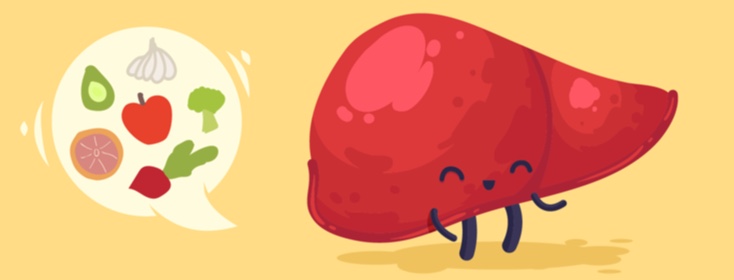Healthy Foods For Hepatitis C: A Liver-Friendly Diet
Why it Matters?
The liver is an incredibly vital organ - so much so that the body cannot survive without it. Two of its primary functions are to work with your blood to filter out the old and damaged blood cells, allowing only the healthiest of blood to circulate through your body, and to help your body to break down the different fats you consume through food and turn that into energy. Some call the liver “Grand Central Station” for your body, because of all of the different functions it performs. In this article we discuss liver-friendly and healthy foods for hepatitis C.
Although the liver is an important organ in any human body, it is especially important that someone with a positive hepatitis C test maintain healthy liver function. This is because the liver is highly susceptible to organ damage or even cirrhosis due to the ways in which hepatitis C can impact the body over time. Your doctor may recommend a specific medication regimen in order to prevent liver damage or s/he may suggest regular liver function tests in order to monitor the health of your liver as your body receives treatment for hepatitis C.
How do I know if my liver is unhealthy?
Although only your doctor’s tests can provide you with specific information about an unhealthy liver (including why it is unhealthy and to what degree an intervention is needed), you may be able to see some symptoms of an unhealthy liver even without medical training. For example, if you are feeling run down or fatigued, there may be something wrong with your liver. As your liver helps to turn fats into energy, a lack of energy could indicate a problem with that process. Other symptoms include nausea, vomiting, lack of appetite, brown-colored urine, or jaundice (which is when the whites of your eyes appear to be yellow in color).
Some people may not notice these symptoms, even if there are liver problems, so it is important that you continue to see your doctor on her/his recommended schedule so that your liver can continue to be monitored in order to prevent damage or to stop any current problems your body may be having.
What are liver-friendly foods?
- Cruciferous vegetables such as broccoli and cauliflower or cabbage, which aid in digestion
- Garlic, which activates liver enzymes to help the body flush out toxins and cleanse the liver
- Leafy vegetables such as spinach, arugula, mustard greens, and chicory, which can help neutralize chemicals found in foods due to pesticides
- Grapefruit, which helps to naturally cleanse the liver and boost the production of liver detoxification enzymes
- Avocados, which provides an antioxidant that can help detoxify your liver
- Beets and carrots, which are high in plant-flavonoids and beta-carotene which stimulate liver function
- Coffee, which has been scientifically shown to help hepatitis C patients to better respond to their medication
- Apples, which help the body to handle the toxic load as it cleans itself, due to the pectin
- Walnuts, which have tons of omega-3 fatty acids to support healthy liver functions
What should you avoid in order to maintain the health of your liver?
- Raw meat, raw eggs, or raw/unpasteurized milk, which can increase the risk of a bacterial infection due to not being cooked or properly treated
- All alcohol, which has scientifically been shown to increase hepatitis C viral loads in the body and which can cause hepatitis C medications to be less effective or even ineffective
- Fatty red meat, such as heavily marbled steak, which can cause weight gain and put a strain on your liver
- Excess salt, sugar, or white flour, which are considered “empty calories” and should instead be replaced with nutrient-rich foods and drinks
Diets, Detoxes, and Cleanses
The internet is filled with websites and blogs that promise results based on specific diets or the abstaining of food/beverages. Anyone, but especially those with hepatitis C, should be extremely careful about following the directions or recommendations of a stranger on the internet, no matter their alleged medical or dietary background. New fad diets or old wives’ tales are rampant online and some of the recommendations can cause real harm to anyone who tries them without the approval of their doctor.
Instead, you should speak with your doctor to discuss any concerns you have regarding your liver. S/He can discuss your symptoms and your reason for worry and decide both whether testing should be done and whether your personal dietary behaviors will need to be altered. If you have already tried or are trying out a diet or dietary change, make sure to let your doctor know about this so that s/he can help you to determine if that is the right choice for you.1-4
*The foods listed in this article are not to be used as a substitute for medical or dietary advice.

Join the conversation